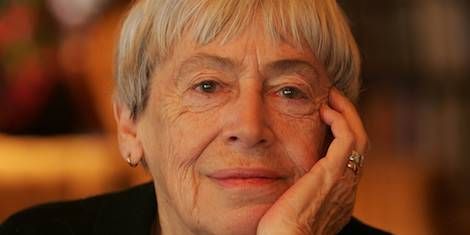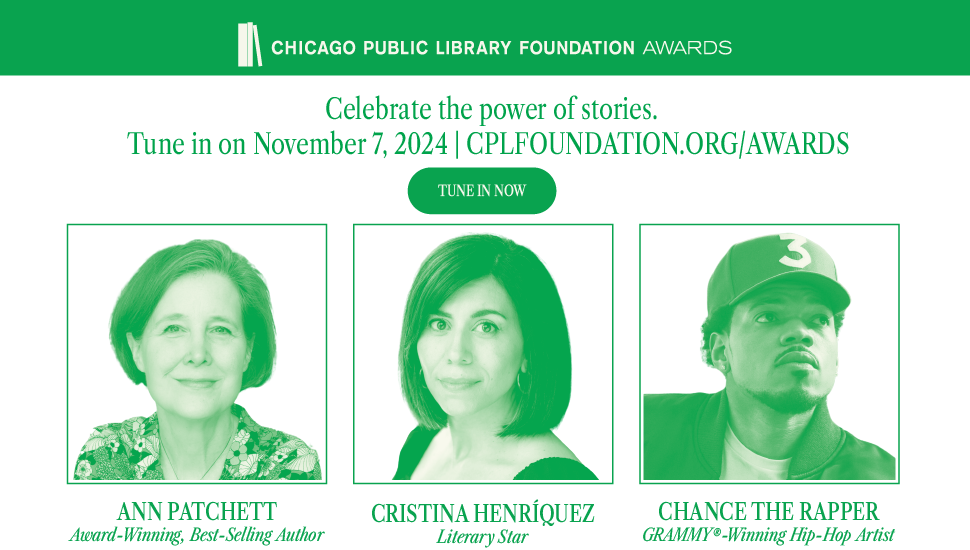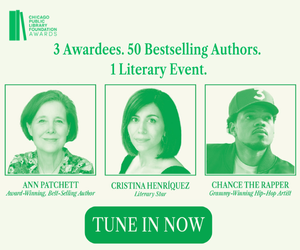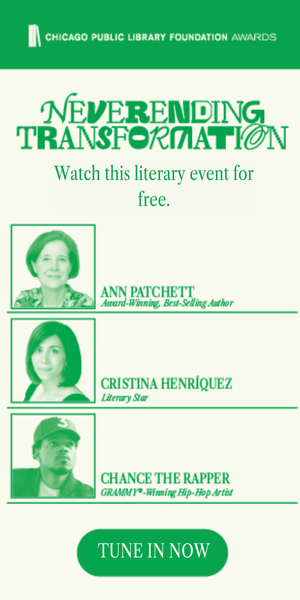
75+ Books Ursula K. Le Guin Recommended
In Ursula K. Le Guin’s passing, literature has lost a giant. In the cruelty that always occurs after an author’s death, it has brought more attention to her work. And so it should! Le Guin was prolific, and there’s a backlog of books to work through before you reach the end of her writing. Here’s a good place to start, with books by Le Guin for every age of reader. Whether you’ve read all of her books or not, you can enjoy The Wise Words of Ursula K. Le Guin.

But what happens when you do get to the end of her works? What if you’ve already read all of her books? Where do you go from there? Well, one place to start is the long list of books she’s recommended. (She always balked at naming her “favorite” books.) Here are more than 75 of them: books she mentioned in interviews, or wrote about on her blog, or gave to the Strand for her “authors bookshelf,” or books she blurbed. I have included her blurbs or an excerpt of her review when applicable: all the others were simply listed without context. Here are the books Ursula K. Le Guin recommended at some point, roughly by genre:
Children’s Books:
- Alice In Wonderland by Lewis Carroll
- The Jungle Book by Rudyard Kipling
- Just So Stories by Rudyard Kipling (with Kipling’s illustrations)
- Black Beauty by Anna Sewell
- Younguncle Comes to Town by Vandana Singh
- Anyone who reads this book will be perfectly happy. (Blurb)
Young ADult:
- Listening at the Gate by Betsy James
- Tightly plotted, tautly written, bursting with passion and poetry, Listening at the Gate will transport you to a world both hauntingly familiar and utterly new—full of love, grief, hope, and wild adventure. (Blurb)
Classics:
- Pride and Prejudice by Jane Austen (and “all the novels”)
- [Q: Who is your literary crush?] I have never got over Fitzwilliam Darcy, and I never will. (EW)
- Mansfield Park by Jane Austen
- Jane Austen’s Mansfield Park is the least popular of her works. The heroine, Fanny Price, isn’t feisty, fiery, and likable—she’s poor, shy, insecure, introverted, and awfully law-abiding. But I love her for her courage. Despite shame and contempt, she holds to what she thinks is right. Her story, like the others here, has given me deep pleasure and a whole lot to think about. (The Week)
- Jane Eyre by Charlotte Brontë
- Of Jane Eyre, I just want to say that if you think you know the book because you’ve seen a movie based on it, do think again. (The Week)
- Wuthering Heights by Emily Brontë
- Charles Dickens: Bleak House, Our Mutual Friend, Little Dorrit
- Silas Marner by George Eliot
- Silas Marner was probably on the 1945 high school curriculum because it was short and not about sex. I hated it—didn’t have a clue what it was about. Eliot (real name Mary Ann Evans) writes with a dry, adult humor and depth of experience of pain I could only appreciate when I finally finished growing up. (The Week)
- Mary Barton by Elizabeth Gaskell
- Gaskell’s first novel, the tale of a working-class girl in Manchester during the Industrial Revolution, probably isn’t her best, but I’ve not yet got through it without tears. It’s so alive with indignation, sympathy, and compassion. (The Week)
- The Country of the Pointed Firs by Sarah Orne Jewett
- An 1849 story suite about a village on the coast of Maine. Its setting and characters are so vivid that I think of Dunnet Landing as a place I’ve been, where I’m very fond of the people. And the beauty of it is, I can go back there whenever I want. (The Week)
- The Fountain by Charles Morgan
- A book that did have real influence on me when I was 22. Though I don’t now really know why, so it’s not among my fifty at the Strand. But it’s on my own shelf, for the piety or tenderness we have for something we loved long ago. (The Strand)
- Doctor Zhivago by Boris Pasternak
- [Q: Who is your literary hero?] Yuri, in Doctor Zhivago. But I think that’s partly because the author, Boris Pasternak, is a literary hero to me, for his quiet, subtle absolute resistance to tyranny. (EW)
- Uncle Tom’s Cabin by Harriet Beecher Stowe
- Uncle Tom’s Cabin may be, today, the most misunderstood, misread American novel. I hope its vitality, generosity, and human warmth will carry it on past this period of prejudice and eclipse. (The Week)
- War and Peace by Leo Tolstoy (“in any of the older translations, not Pevear”)
- Anna Karenina by Leo Tolstoy
- Mark Twain: Huckleberry Finn, Roughing It, Life on the Mississippi
- To the Lighthouse by Virginia Woolf (or any Virginia Woolf)
Fantasy:
- Carmen Dog by Carol Emshwiller
- Carol is the most unappreciated great writer we’ve got. Carmen Dog ought to be a classic in the colleges by now…It’s so funny, and it’s so keen. (Blurb)
- Gormenghast by Mervyn Peake
- [In answer to “Which fantasy novels do you consider the best of the genre?”] (NYT)
- The Name of the Wind by Patrick Rothfuss
- It is a rare and great pleasure to find a fantasist writing not only with the kind of accuracy of language absolutely essential to fantasy-making, but with real music in the words as well. Wherever Pat Rothfuss goes with the big story that begins with The Name of the Wind, he’ll carry us with him as a good singer carries us through a song. (Blurb)
- Jagannath: Stories by Karin Tidbeck
- I have never read anything like Jagannath. Karin Tidbeck’s imagination is recognizably Nordic, but otherwise unclassifiable—quietly, intelligently, unutterably strange. And various. And ominous. And funny. And mysteriously tender. These are wonderful stories. (Blurb)
- The Lord of the Rings and The Hobbit by J. R. R. Tolkien
- I always cry at the end of The Lord of the Rings when Sam says, “Well, I’m back.” (EW)
- The Sword in the Stone by T.H. White
Fiction:
- Little Big Man by Thomas Berger
- Like Mark Twain, Berger has a pitch-perfect ear for how Americans talk—and think. And like Mark Twain he can ruthlessly indict human stupidity and bigotry while never losing his temper, and being really, really funny. (Source)
- The Complete Cosmicomics by Italo Calvino
- Italo Calvino’s brilliant, ludic stories show a writer far ahead of his time. (Review)
- City Of Your Final Destination by Peter Cameron
- A nice but hapless Iranian-Canadian graduate student in Kansas has to go to Uruguay to get permission to write a biography. Funny and touching and a fine love story.
- The Yiddish Policemen’s Union by Michael Chabon
- Even better the second time. (EW)
- Middlemarch by George Eliot
- Molly Gloss: The Jump-Off Creek, The Hearts of Horses, Falling From Horses
- Kim by Rudyard Kipling
- The Day’s Work by Rudyard Kipling
- Crazy Weather by Charles L. McNichols
- The Aubrey-Maturin series by Patrick O’Brian
- Grace Paley
- [Q: Is there a book you wish you had written?] Any of Grace Paley’s books. But I don’t wish I had written anybody else’s books; I just wish I was more like Grace Paley. (EW)
- Helen Phillips
- Blindness and Seeing by José Saramago
- Blindness scared me to death when I started it, but it rises wonderfully out of darkness into the light. Seeing goes the other way and is a very frightening book.
- The Cave by José Saramago
- A troubling parable of consumerism, a vision of the Ultimate Mall. The main characters are vivid, likable, ordinary people, which is rare in parables. The dog is great. All Saramago’s dogs are great.
- José Saramago: The Stone Raft, The Elephant’s Journey, All the Names
- Colin Thubron
- The Receptionist and Other Tales by Lesley Wheeler
- Lesley Wheeler’s brief novel of misbehavior in academia, subtle and funny, rashly inventive and perfectly realistic, uses all the forgotten powers of metaphor and poetry to make the mundane luminous. (Blurb)
- Islandia by Austin Tappan Wright
Graphic Novels:
- The Rabbi’s Cat by Joann Sfar
- I laughed out loud at Joann Sfar’s graphic novel The Rabbi’s Cat. (EW)
- Age of Bronze: The Story of the Trojan War. I: A Thousand Ships, and II: Sacrifice by Eric Shanower
- The drawing is excellent, the language lively, and the research awesome. (Blog)
Nonfiction:
- The Worst Journey in the World by Apsley Cherry-Garrard
- The Voyage of the Beagle by Charles Darwin
- Changing Ones by Will Roscoe
- An examination of how gender has been constructed in Native American societies. Responsibly researched, very well written, generous in spirit, never oversimplifying a complex subject, this is a wonderfully enlightening book. (Blog)
- The Immortal Life of Henrietta Lacks by Rebecca Skloot
- The Immortal Life of Henrietta Lacks brings together scientific and medical research (and hypocrisy), the biography of an almost invisibly elusive black woman, the exposure of an act of exploitation, racism and social injustice, and the writer’s own deeply respectful involvement with the people from whom she won this absorbing, troubling, wonderfully told story. (Source)
Poetry:
- Emily Brontë
- T.S. Eliot
- Robert Frost
- Thomas Hardy
- A. E. Housman
- “Hurt Hawks” by Robinson Jeffers
- I chose Robinson Jeffers’ “Hurt Hawks” because it always makes me cry. I’ve never yet got through the last lines without choking up. (Contribution in Poems That Make Grown Women Cry)
- John Keats
- On the Nature of Things by Lucretius
- Rainer Maria Rilke
- Percy Bysshe Shelley
- William Wordsworth
- W.B. Yeats
Science Fiction:
- Ring of Swords by Eleanor Arnason
- At last, a non-predictable, thought-through, can’t-stop-reading-it story, full of complicated and irresistible people, some of them human…Enjoy! Enjoy! (Blurb)
- They Fly at Ciron by Samuel R. Delaney
- Vintage Delaney is his finest fantasy mode (Blurb)
- The Man in the High Castle by Philip K. Dick
- Dark Orbit by Carolyn Ives Gilman
- Intellectually daring, brilliant imagined, strongly felt. This one’s a winner. (Blurb)
- At the Mouth of the River of Bees by Kij Johnson
- Dreamsnake by Vonda N. McIntyre
- Embassytown by China Miéville
- Roadside Picnic by Arkady Strugatsky
- Lively, racy, and likable…complex in event, imaginative in detail, ethically and intellectually sophisticated. (Blurb)
- Binti by Nnedi Okorafor*
- There’s more vivid imagination in a page of Nnedi Okorafor‘s work than in whole volumes of ordinary fantasy epics. (Blurb)
These were sourced partly from an Entertainment Weekly interview, a New York Times interview, her authors bookshelf at The Strand, a guest post at The Week, her reviews in The Guardian, her blog post “Some Books I’ve Liked”, and the best Googling I could muster. (If anyone has a good way to find the books an author has blurbed, though, I’d love to hear it!)
There are some surprises here. For one thing, there are a lot fewer SFF titles than I would have expected. Classics and poetry seem to be her go-to for recommendations. I also have to admit that I’m a little disappointed by how overwhelmingly white this list is. There is not quite a handful of authors of color listed.
This isn’t a complete list! I wasn’t able to find a good way to locate all of the books she’s blurbed, and I didn’t go into her Guardian reviews much, because they were often unclear about whether she would actively recommend the title. Let me know if there are others I should add to the list!
*Denotes books added after article’s original publication










